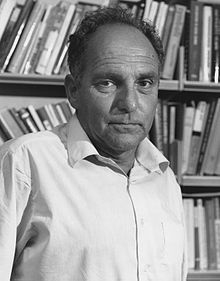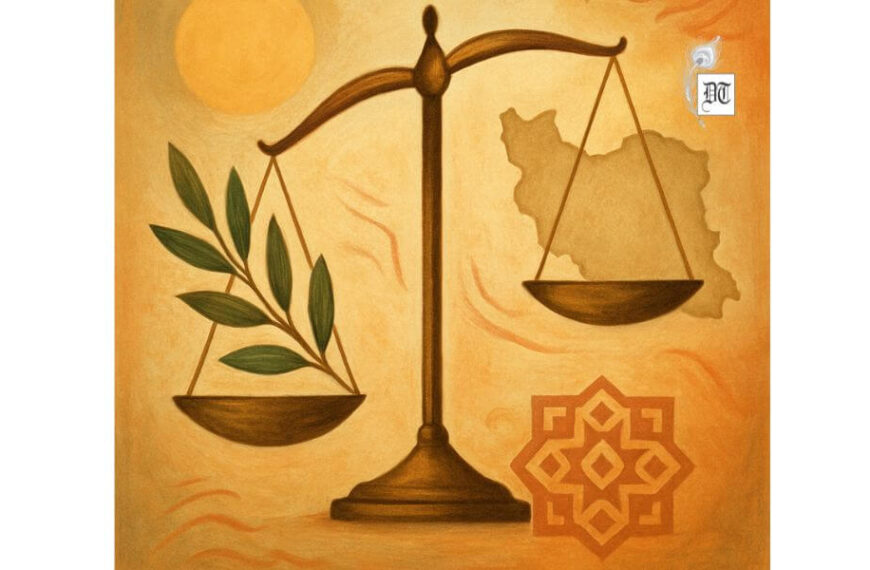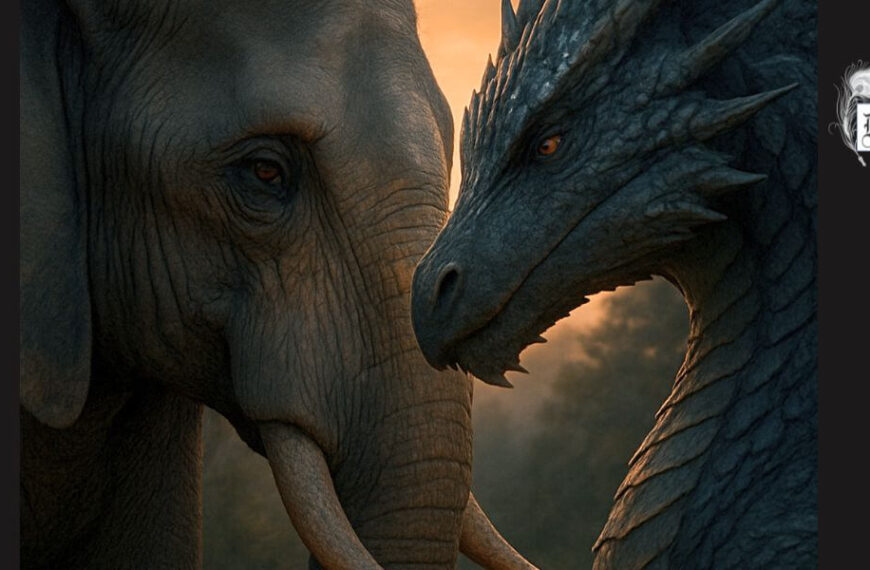Through the discourse of ‘Cultural nationalism’ BJP and its parent organisation RSS have been successful in selling the idea of new India where only Hindu rules rest of other had to accept a second-class status, cautions Amit, our Editor-at-Large (Europe), in an in-depth political analysis. A Different Truths exclusive.
The current impasse between the Prime Minister Narendra Modi and the West Bengal Chief minister Mamta Banerjee, among other things, confirm one thing that Hindu nationalist party (BJP) can go to any extent to impose the agenda of Hindutva including the coercing and silencing the voices challenging its hegemony.
Approximately five years of rule by the BJP has proved that it has difficulty accepting the core of Indian constitutional values such as secularism and religious pluralism. Through the discourse of ‘Cultural nationalism’ BJP and its parent organisation RSS have been successful in selling the idea of new India where only Hindu rules rest of other had to accept a second-class status.
Nehru (1946) reasoned that religion should be divorced from politics, hoping that communalism would eventually wane with modernisation and development
When the first Prime Minister of India, Jawaharlal Nehru crafted secularism to assure equal play of all religions, Hindutva, was made a substitute for secularism by the proponents of majoritarian politics. Nehru (1946) reasoned that religion  should be divorced from politics, hoping that communalism would eventually wane with modernisation and development. However, it did not happen. Communalism, as an ideology for political mobilisation, was persistently resonating in the sentiments of the religiously conscious communities particularly religious-nationalist Hindus, which finally resulted in the rise of the Hindu right such as RSS/BJP/VHP, known as the Sangh family.
should be divorced from politics, hoping that communalism would eventually wane with modernisation and development. However, it did not happen. Communalism, as an ideology for political mobilisation, was persistently resonating in the sentiments of the religiously conscious communities particularly religious-nationalist Hindus, which finally resulted in the rise of the Hindu right such as RSS/BJP/VHP, known as the Sangh family.
The Sangh ‘family’ emphasis has been empowering Hindus and affirming Hindu identity. Yet even though the Sangh family claims to speak for all Hindus and characterises its platform as ‘Hindu-ness’ (Hindutva), its goals and assumptions often diverge sharply from traditional Hindu ideas; despite the rhetoric of reclamation, it is redefining what it ‘means’ to be Hindu.
When the BJP came to power, in 1999, it sponsors and finance academic research, teaching, and publishing, to give Hindutva many voices, in many languages, in India and abroad. The Sangh took control of countless government agencies and offices, doling out public as well as private funds. Official Hindutva gave communalism cultural validity that made Hindu violence against Muslim seem a natural manifestation of Hindu rage, Hindutva acquired respectability as a national party ideology (Ludden, 2005: vii). In 2014, BJP repeated the agenda of 1999 – only in a more forceful and ruthless manner damaging the constitutional institutions and social-religious fabric of the Indian society.
There is a tendency in Hindu nationalism to evoke the past history of Hindu kingdom. They do so because in order to define a nation … to evoke the nation’s past.
The main objective of Hindu religious-nationalists is to establish Hindu rule in India: to spread Hindu values and to defend Hindu society from alien religions, cultures, and ideologies. There is a tendency in Hindu nationalism to evoke the past history of Hindu kingdom. They do so because in order to define a nation, it is necessary to evoke the nation’s past. This attempt to resurrect a past is linked to the tendency to enforce uniformity of belief, particularly religious homogeneity, among members of a body politic (Elie Kedourie, 1960)[1].
However, a nation is born in culture (Anderson, 1983); and nationalism (nation-ness) are cultural artefacts around which, imagined nation, its history, religion, myths and legends revolves such is the case of Hindu nationalism. Hindu nationalism is ideologically a combination of religion and nationalism; it’s a form of cultural nationalism which stresses the supremacy of the Hinduism and Hindu culture. It warns against foreign influences and claims to be an indigenous product of authentic religious and cultural traditions, combining classical Hinduism, Hindu reformism and modern nationalism (Jaffrelot 1996). Hindu nationalist leaders often use myths and symbols from the ancient holy texts in their analyses of political issues. This kind of religious discourse have been boosted and sustained by the mythological tv. serials in 1990s such as Ramayana and Mahabharat. Ramayana left a long-lasting impact on Hindu masses, made them more self-conscious about their religion; deeply polarised and communalised their psychic (Pollock, 1993).
Ernest Gellner (1964) conveys the idea that nationalism is not the awakening of nations to self-consciousness: it invents nations where they don’t exist.
Ernest Gellner (1964) conveys the idea that nationalism is not the awakening of nations to self-consciousness: it invents nations where they don’t exist. In case of  Hindu nationalism, it is quite relevant. Hindu nationalism was developed (and invented as Gellner would say) as an alternative political culture as the dominant idiom in Indian politics during the independence movement; Hindu nationalism crystallised as an ideology; it rejected non-violence as a legitimate and effective modus operandi against the British (Jaffarlot, 2007:4); it propagate the superimposition of a religion, a culture, a language, and a sacred territory thus Concept of Hindutva, is a form of ethnic nationalism (Ibid:15). Its motto, ‘Hindu, Hindi, Hindustan’, echoed many other European nationalisms based on religious identity, a common language, or even racial feeling.
Hindu nationalism, it is quite relevant. Hindu nationalism was developed (and invented as Gellner would say) as an alternative political culture as the dominant idiom in Indian politics during the independence movement; Hindu nationalism crystallised as an ideology; it rejected non-violence as a legitimate and effective modus operandi against the British (Jaffarlot, 2007:4); it propagate the superimposition of a religion, a culture, a language, and a sacred territory thus Concept of Hindutva, is a form of ethnic nationalism (Ibid:15). Its motto, ‘Hindu, Hindi, Hindustan’, echoed many other European nationalisms based on religious identity, a common language, or even racial feeling.
In fact, right wing Hindu politicians with their extensive support network of likeminded people, through the ‘institutionalised riot system’ stoke fire of communalism; kept idea of violent Hindu nationalism alive in which millions of Muslim minorities have been killed (Brass 2003; Engineer 1984). Violence in Godhra against Muslim minorities, and aftermath of Babri Mosque demolition, riots in Mumbai are such examples. Recent incidences of mob lynching, cow vigilante[2] and expulsion and revocation of citizenship of Rohingya Muslims from Assam to Bangladesh are a case in the point[3].
Studies have showed that communal riots have benefited (electoral victory) Hindu fundamentalist parties/groups and have encouraged them to carry out more such violence (Corbridge and Harris 2000). Thus, it would not be a surprise if, a well-orchestrated, Hindu-Muslim riots-at the large scale-breaks out before the Lok Sabha election in 2019.
It would be interesting to note that Hindu nationalism has become part of the everyday common sense of many Indians as Michael Billig has called it ‘banal nationalism’. This banal nationalism easily connects with educated urban middle-class professional population – among whom Hindu religiosity is growing (Nanda, 2009), which provides fodder to Hindu fundamentalism and its cultural nationalism.
Extreme cultural nationalism may prepare masses for the war frenzy, but not for the peaceful co-existence with other denominations. The aforementioned development shall be alarming for those who believe in an idea of India, which is secular, religiously plural and tolerant to dissenting ideas.
Reference:
Brass, Paul (2003), Response to Ashutosh Varshney (accessed at www.mail-archive.com 4 September 2010)
Engineer, Asghar Ali (1995), Communalism in India: A Historical and Empirical Study, New Delhi: Vikas Publishing.
Engineer, Ashgar Ali (1984), Communal riots in post-independence India. Hyderabad: Sangam Books.
Gellner, Ernest (1964) Thought and Change. London: Weidenfeld and Nicolson
Gellner, Earnest (1984) Nations and Nationalism. Ithaca: Cornell University Press
Kedourie, Elie, (Nationalism) Nationalism, Hutchinson, London, 1960.
Nanda, Meera (2009), The God market: how globalization is making India more Hindu Delhi: Random House.
Jaffrelot, Christophe & Therwath, Ingrid (2007), The Sangh Parivar and the Hindu diaspora in the West: what kind of ‘long-distance nationalism’? International Political Sociology, 1, pp. 278–295.
Jaffrelot, Christophe (1996), The Hindu Nationalist Movement and Indian Politics 1925-1990s: Strategies of Identity-Building, Implantation and Mobilization, New Delhi: C Hurst & Co
Ludden, David (2005), Making India A Hindu: Religion, Community, and the Politics of Democracy in India, Delhi: Oxford University Press
Nehru, Jawaharlal (1946), What is Hinduism? The Discovery of India, Delhi: Oxford University Press
Pollock, Shelden (1993) Ramayana and Political Imagination in India, The Journal of Asian Studies, vol. 52, no. 2, pp-261-297
©Amit Singh
Photos from the Internet
[1] According to Elie Kedourie (1960), nationalism as a doctrine holds that the only legitimate political association is one which binds together men speaking the same language, sharing the same culture, and cherishing the same heroes and ancestors. Therefore, nationalism expresses a preoccupation with history which has come to be a dominant theme of the modem European outlook and which has also been taken up wherever European culture has penetrated. See Kedourie (1960).
[2] https://www.economist.com/the-
[3] https://www.hrw.org/news/2018/


 By
By


 By
By